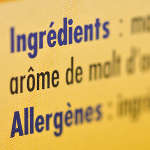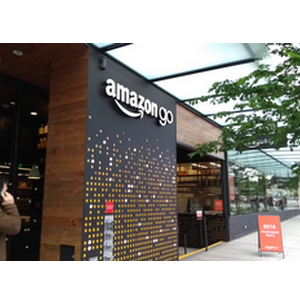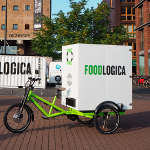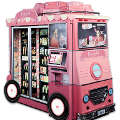
Whilst the regulations on simplified labelling of foodstuffs were adopted by the European Commission in 2011, European Union governments had a 3-year period to apply the law. It will come into force on 13 December, and aims to regulate mandatory labels on packaging and in restaurants.
In addition to the precise list of ingredients, products must indicate in bold the 14 allergens listed by the Commission (cereals, peanuts, nuts, milk, gluten...). This measure is primarily aimed at the agro-food industry and food stores, but also concerns restaurants and resellers of directly-consumed products. Allergens must also be displayed near the products sold. In the case of restaurants, they can be directly indicated on the menu or via a clear, visible poster.
Similarly, the list of mandatory information must be easily accessible for the client, before the final purchase, when the product is sold over the internet or another distance sales circuit.
Additionally, the client must be informed of the presence of nanomaterials in foodstuffs. Via nanotechnologies, these minuscule particles can modify the properties of a foodstuff or food component. It is these nanomaterials that, for example, can reduce the salt content of a meal without changing its taste, or modify the texture. On its site, the French Association for monitoring the challenges of nanoscience and nanotechnologies presents several nanomaterials used in our food.
"Titanium dioxide nanoparticles (food additive E171) are used as a white pigment. [...]. Nanoparticles, in particular nanosilicas (additive E550/551) are added to some food products (frozen food, ice cream, lasagne sauces, instant noodles, various seasonings for minced meat and burritos, pancakes, cream, roasted vegetables, etc) to make their texture more homogeneous and smooth..."
In other cases, nanomaterials aim to extend food conservation, in the form of nanocapsules that release "preserving substances in food" or by adding "carotenoids [...] to lemonade, fruit juice, cheese and margarine". Similarly, titanium nanoparticles can be found in "Trident chewing gum, M&M's, Mentos and other sweets, chocolate bars and Nestlé coffee creams". Fruit and vegetables don't escape, and sometimes contain "platinum nanoparticles to decompose ethylene and slow [their] maturing". These elements must now be indicated in the list of ingredients, preceded by the indication [nano].
In addition, to better understand the new regulations on foodstuffs, the European Commission published FAQs on its site, in January 2013.
News in the same category
Customers who have become accustomed to single-use takeaway cups while visiting the Boston Tea Party coffee chain will need to make a slight adjustment. As of 1 June, disposable cups have been removed from 22 of their outlets.
Can you imagine getting into a shop, collect items of your preference, and walk out?
Specialised in professional deliveries without CO2 emissions, the Cities Fundation deploys its Foodlogica project and its scooters in Amsterdam. Able to transport up to 300 kilos of local products, these bicycles use green electricity.
To find its customers where they least expect it, the American cosmetic brand, Benefit, is installing vending machines developed by ZoomSystems. In the shape of pink buses, they contain the brand's best sellers.




